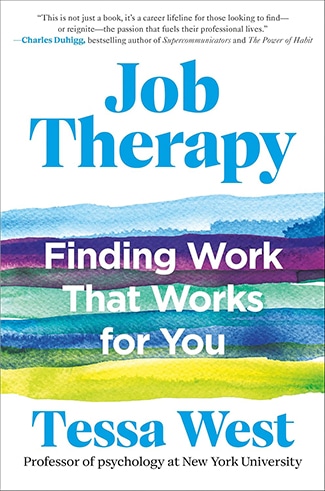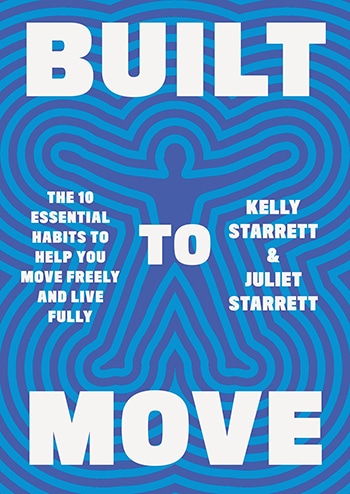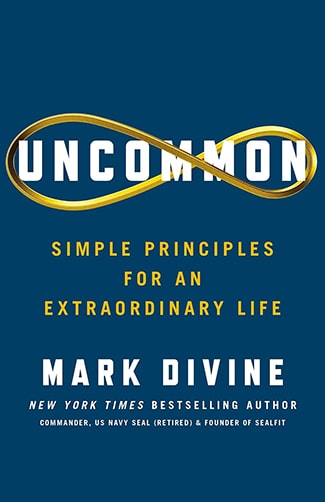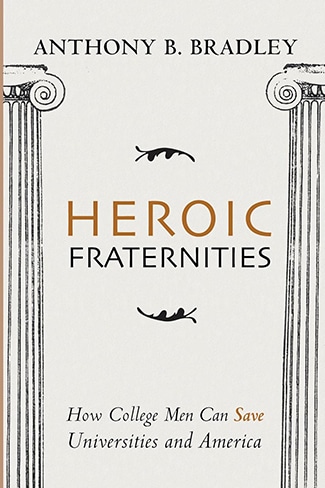Podcast Summary
Learn the Art of Small Talk: Overcome Anxiety and Connect Deeply!: Small talk is an essential tool for building relationships, and with proper techniques and practice, anyone can master the skill and engage in meaningful conversations.
Small talk is a valuable skill that can lead to meaningful connections and deeper relationships. Small talk serves as an on-ramp to building rapport and transmitting important information about oneself to others. It allows us to assess whether someone is trustworthy and safe to engage with. For many, anxiety surrounding small talk may stem from a fear of such interactions or a lack of knowledge on how to engage in it effectively. However, small talk can be learned and developed like any other skill. By understanding the mechanics of conversation, doing prep work, using openers, actively listening, and knowing how to gracefully end a conversation, one can overcome anxiety and engage in stress-free small talk.
Confused about shyness, social anxiety, and introversion? Here's the difference!: Shyness is a normal discomfort, social anxiety is extreme fear, and introverts need time alone to recharge. Different strategies may be needed to overcome each.
Shyness, social anxiety, and introversion are often confused with each other, but they have distinct differences. Shyness is a normal level of discomfort with dealing with others and worrying about making a bad impression. Social anxiety is like shyness on steroids, where it becomes a phobia and people start avoiding things they want in life due to extreme discomfort around others. Introversion, on the other hand, is where individuals have their energy drained by interaction with others, and they need time to recharge. It's important to understand that introverts can still be skilled at conversation, but may not want to engage in it as much as extroverts. In helping individuals overcome shyness and social anxiety, teaching conversational skills can be effective for some, while others may require a combination of cognitive behavioral therapy and gradual exposure to social situations.
Learn the secret to overcoming social anxiety and becoming a confident conversationalist!: Overcoming social anxiety and improving small talk skills involves shifting the focus from oneself to the mechanics of conversation and making the other person feel comfortable.
Overcoming social anxiety and improving small talk skills involves shifting the focus from oneself to the mechanics of conversation. Socially anxious individuals often get caught up in self-referential thoughts, causing them to appear awkward and creating problems for themselves. To address this, individuals should strive to think less about themselves and more about the other person when engaging in conversation. It is akin to being a host and making the other person feel comfortable. Paying attention to the mechanics of conversation, such as opening a conversation, acknowledging others, maintaining eye contact, and having open body language, can greatly enhance social interactions. By practicing these skills, one can become a more confident and engaging conversationalist.
Boost Your Conversations with These Simple Prep Strategies!: Preparation is essential for effective conversations. By preparing opening questions and statements, individuals can have more engaging discussions, even in small talk. Add in some improvisation for a natural flow, and tailor the preparation to the specific situation for maximum effectiveness, leading to more meaningful connections.
Preparation is crucial for having meaningful conversations. Whether it's a social event, a date, or a job interview, taking the time to prepare three to five opening questions and credentialing statements can greatly enhance the conversation. Having set topics in mind allows for more focused and engaging discussions, even in small talk. While improvisation is important, treating a conversation as a composed performance can help manage its flow and ensure that meaningful connections are made. Additionally, tailoring the preparation to fit the specific context and situation can further enhance the conversation's effectiveness. Ultimately, by investing in preparation, individuals can become more interesting and successful in their interactions.
Master the Art of Small Talk With These Expert Tips!: Effective small talk involves being genuinely interested in others, managing first impressions, and avoiding cliched openers to maintain engaging and meaningful conversations.
Effective small talk requires preparation and consideration. Engaging in meaningful conversations involves more than just sharing facts or conducting research. It's essential to be prepared but not rely solely on facts and figures. Instead, being genuinely interested in the other person, their experiences, and finding common ground can help foster a connection. Managing first impressions also plays a role in successful small talk. Maintaining eye contact, open body language, and appropriate distance are important. Additionally, having a well-prepared opening or question can help ease social anxiety and create a sense of control. While asking about someone's profession is still a reliable conversation starter, it's also valuable to share something about oneself to gauge the other person's reaction and compatibility. Lastly, avoiding cliched openers like talking about the weather can help keep the conversation engaging and interesting.
Avoid these 4 conversation pitfalls to become the ultimate communicator!: Be mindful of sensitive topics, read body language, and balance listening and sharing to avoid awkwardness and being a conversational narcissist.
When engaging in conversations, it is important to be mindful of certain topics to avoid. Politics, religion, and criticism should be approached with caution to prevent offending others. It is also wise to avoid discussing personal relationships unless you have a close relationship with the person. When joining a group conversation, it is crucial to pay attention to body language and find a suitable hook to insert yourself smoothly. It is common for people to worry about awkwardness, but in reality, most conversations flow naturally when someone joins in. Additionally, it is essential to avoid monopolizing conversations by following the three-to-one rule, where you ask three questions and share one thing about yourself. By being aware of these conversational mechanics, one can avoid coming across as a conversational narcissist.
Learn the ultimate secret to taking control of any conversation!: Actively engage, acknowledge, and redirect conversations to be perceived positively. Be cautious of criticism and implicit biases during small talk to prevent misunderstandings.
Effective communication involves actively engaging in a conversation, acknowledging the other person's words, and using binary questions to take control. By enthusiastically acknowledging the last thing the person says and then interrupting with a binary question, you can redirect the conversation and prevent the other person from dominating. Additionally, leaving a conversation on a positive note is crucial, as people tend to remember the last thing they hear from you. By ending with a friendly and enthusiastic farewell, you can leave a lasting impression and be perceived as a cool person. Lastly, it's essential to be cautious of criticism and implicit biases during small talk to prevent any misunderstandings or uncomfortable situations.
The Surprising Power of Owning Your Mistakes and Connecting Authentically: Acknowledging and embracing your mistakes builds respect and creates positive connections with others. Focus on making the other person feel at ease, rather than showcasing your greatness. Genuine compliments and cultural sensitivity are crucial.
Owning and normalizing your mistakes can fix a faux pas and transfer authenticity to the other person. It is common for people to instinctively minimize or explain their mistakes, but leaning into them and acknowledging their horribleness shows respect and often resolves the situation. Most people are on your side and want to have a good interaction with you, so they are unlikely to hold your mistakes against you. This concept also applies to public speaking, where acknowledging and laughing at your own mistakes can bring the audience on your side. Additionally, when it comes to first dates, it is important to focus on making the other person feel safe and at ease, rather than trying to convince them of your greatness. Being authentic and asking questions can help create a positive connection. Compliments are also valuable, as long as they are not overly excessive and culturally appropriate.
The 4 Levels of Acknowledgment: Master Conversation Skills Today!: Mastering the art of acknowledging others' feelings in conversation can make you a more engaging and interesting conversationalist.
The skill of acknowledging people is crucial in any conversation, including a first date. Acknowledgment involves using different levels of octane to effectively respond to what someone says. The first level is paraphrasing, where you simply repeat what the person said in your own words. This technique can be used when you're unsure of what else to say. The next level is observation, where you make a guess about the person's feelings. Validation comes next, where you acknowledge and validate their feelings, even if you disagree. The highest level is identification, where you assure the person that you would feel the same way. By mastering this skill, you can become an engaging and interesting conversationalist.
The Crucial Role of Small Talk in Job Interviews: Small talk in job interviews is not just idle chatter; it is an opportunity for the interviewer to assess your fit for the team and your work style. Being genuine and prepared can make a significant impact on their perception of you.
Small talk in a job interview is crucial for the interviewer to gauge what kind of person you are and how you would fit into the team. The interviewer has two main objectives - to assess if you can do the job and to determine if you are a good fit for the team. Therefore, it is essential to authentically convey information about yourself and your work style. Good preparation and providing relevant credential examples can significantly impact the interviewer's perception of you. Small talk allows the interviewer to observe your reactions and assess how you would interact with current team members. It is important to be genuine and let your true self shine during the interview.
The Secret to Success: Be True to Yourself in Any Situation!: Being authentic and genuine in social and professional settings helps establish personal boundaries and build meaningful connections, while avoiding critical or embarrassing remarks is essential.
It is important to be authentic and true to yourself in various social and professional situations. Rather than trying to give answers you think others want to hear, it is crucial to express your genuine thoughts and feelings. This not only helps in setting personal boundaries, but also allows others to see your sincerity and authenticity. Whether it's during a job interview or at a social gathering, being comfortable with who you are and transmitting that to others is more important than trying to impress them. It is also beneficial to leverage existing relationships, such as asking the host to introduce you to other people at a party or engaging in genuine conversations to build new connections at events like weddings. However, it's important to be mindful and avoid making potentially critical or embarrassing remarks about others, especially the guest of honor.
Boost Your Conversational Skills with the Rotary Four-Way Test!: By utilizing the Rotary Four-Way Test, individuals can improve their communication skills, especially for those with social anxiety, while author Rich Gallagher's book and website offer additional guidance and resources.
The Rotary Four-Way Test offers a valuable strategy for navigating our interactions with others. By asking ourselves if what we are about to say is kind, true, and if it will help build goodwill among people, we can ensure that our words contribute positively to our relationships. This approach to communication can be particularly helpful for those with social anxiety, as it provides a framework for engaging in stress-free small talk. Author Rich Gallagher's book, Stress-Free Small Talk, offers further guidance on improving conversational skills and is available online. Additionally, his website, smalltalkcoach.com, provides coaching services and a wealth of free resources on how to have good small talk.








